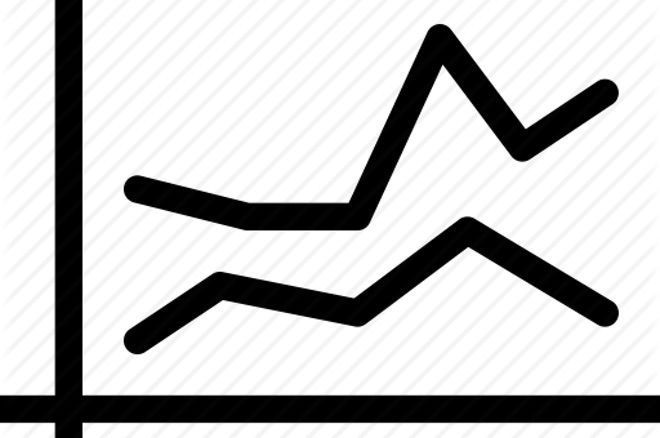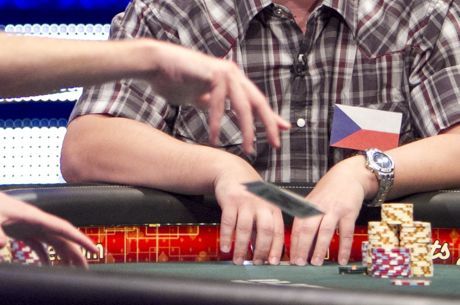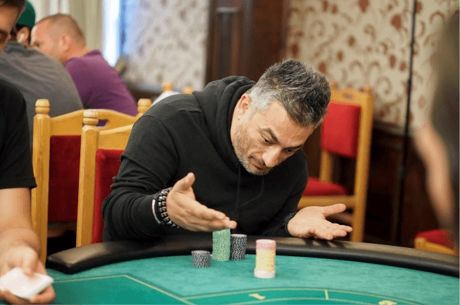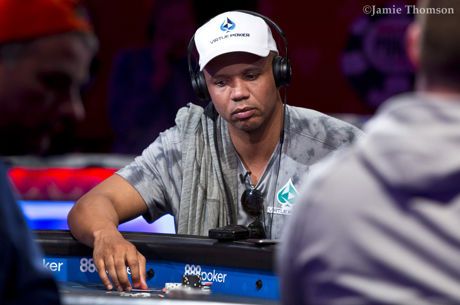Tommy Angelo Presents: What Goes Up Might Come Down

Ed. note: Poker coach, author, and player Tommy Angelo shares with us an earlier article of his addressing the subject of moving up in stakes. The example concerns a limit hold'em player, though the advice applies equally well to those who play no-limit hold'em (or any other variant) and who are considering whether or not to make that upward move.
Meet Joe. Joe has been playing poker for two years. The only game he has ever played is $1/$2 limit hold'em online. Joe has paid his dues. He has worked hard on his game. He reads books and articles and he is active at online forums. Joe lost steadily his first year, then he broke even over the next six months, and in the last six months he has been winning consistently. For the first time since day one, Joe has his eye on moving up to $2/$4 limit hold'em. He has $1,000 in his account.
Joe asks around for advice. "Assuming I keep winning at $1/$2, and assuming I don't add outside money to my account, when should I sit down in a $2/$4 game? How much money should I have in my bankroll?"
Joe asks his poker buddies, he asks people at online forums, and he consults his favorite poker writers. And they all say the same thing. They say that Joe should not move up in limit until his bankroll reaches a certain amount. And that's it. The advice ends.
All of Joe's advisors converged at the number 300 BB (big bets). They said that if Joe's win rate is 1BB / hour, and if he wants to have enough money to be able to ride out the inevitable waves of fluctuation with a reasonably low risk of sinking, he should have at least 300 BB. At least. As in, don't move up unless you have that much. That's the advice. There is no uncertainty. Move up at 300. Not before.
Joe did exactly what they told him to do. He kept winning at $1/$2, and when his bankroll got up to $1,200, which is 300 BB at $2/$4, he took a seat in a $2/$4 game. On his first hand he got AxKx in the big blind. He put a total of 3 BB into the pot, and lost. His bankroll was now 297 BB at $2/$4, or 596 BB at $1/$2.
At that moment, Joe lost his internet connection. He signed back on an hour later, and he had to choose which limit to play. Without even thinking about it, he bought into a $1/$2 game, because he didn't have enough to play $2/$4, because he didn't have 300 BB.
But wait. Before the poker site went offline, Joe was just about to take the small blind in a $2/$4 game, and he was acting on the advice of his advisors then, too. What gives?
What gives is that if someone sets out to move methodically up the ranks online, with the move-ups based on a predetermined minimum bankroll, then there must be a predetermined threshold for moving down, too, or else there is madness to the method.
Let's say you claim to be a sensible sort. You know realistically that as you climb the internet poker mountain, you might sometimes have to descend for a while before continuing the ascent. You might have to drop down in limit.
If you have determined that it is logical to move up based on a number, then, being sensible, you realize that is equally logical to move down based on a number as well. But it can't be the same number. There must be two numbers. You can't be sensible and say, "I am going to move up to the next limit when I have 300 BB at the higher limit," and in the same breath say, "And I will move down from that limit if I drop down to 299 BB."
To climb the mountain, you need a range. You need two numbers, in units of big bets (or in no-limit, big blinds). The bigger number is the minimum amount you need before moving up. The smaller number is the minimum amount you need to keep playing at the limit you just moved to.

World-class coach and author Tommy Angelo is now offering poker pain relief to everyone. You can schedule a call to talk to Tommy about bad betting, bad quitting, bad tempers, or whatever else is hurting your game. Just go to tommyangelo.com. Angelo's first book, Elements of Poker, was called "the seminal poker text of the 21st century" by The London Times, and it has revolutionized the way serious players approach the game.









